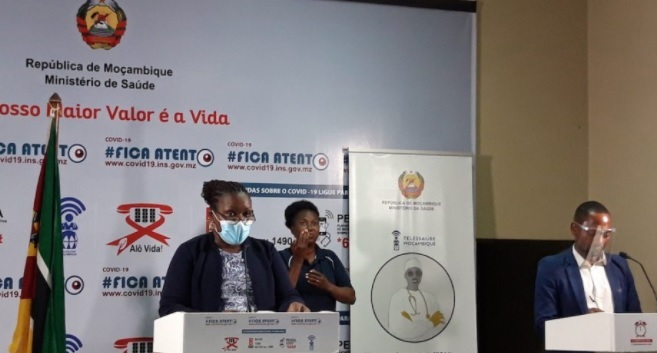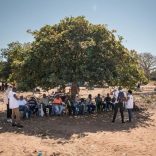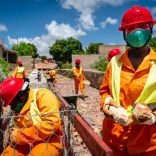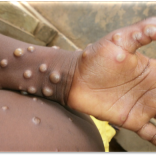Angola / Mozambique: Serious rights violations in 2024 - Amnesty International
Mozambique: Shortage of vaccines compromises Covid-19 vaccination

Photo: A Verdade
Mozambique’s Deputy National Director of Public Health, Benigna Matsinhe, warned on Monday that the late arrival of vaccines against the Covid-19 respiratory disease could compromise the Ministry of Health’s vaccination calendar.
The vaccination campaign began on 8 March, with health professionals as the priority group. In a second phase, the vaccination was expanded to cover diabetics, and people suffering from other chronic illnesses, primary school teachers, prison inmates and staff, and media professionals.
By 24 May, according to Health Minister Armindo Tiago, 323,097 people had been vaccinated against Covid-19, which is only two per cent of the target figure of 16 million.
To date, Mozambique has received 200,000 doses of the vaccine produced by the Chinese Sinopharm company, donated by the Chinese government, and 484,000 doses of the Covishield vaccine. 100,000 doses were donated by the Indian government and 384,000 doses were provided through the Covax facility, set up by the World Health Organisation (WHO) to ensure that vaccines reach poor and middle income countries.
Covax is heavily dependent on Covishield, which is produced by the Serum Institute of India. But the Covid-19 catastrophe overwhelming India, has forced the Serum Institute to halt the export of vaccines until at least the end of this year. The Mozambican Health Ministry’s hopes that millions more doses of the vaccine would reach the country by the end of May have thus been dashed.
“Right now, we have no guarantees about when the vaccines will arrive”, admitted Matsinhe. “But procedures to acquire vaccines are under way”.
There are three means of acquiring vaccines – through the Covax facility, through the government’s own purchases, and through arrangements between the government and private companies.
The countries where companies make the vaccines have prioritised their own requirements, and in some cases have purchased many more doses of vaccine than they need.
“We think that, as time passes, and the needs of the manufacturing countries are met, the moment will come when we will achieve access to a greater number of vaccines”, said Matsinha.
She revealed that the government is negotiating, via the World Bank, to obtain about seven million doses of the Johnson & Johnson vaccine (which, unlike most of the vaccines on the market, is administered in one dose, not two).
There is so far no forecast for when these vaccines will arrive. “It may be towards the end of the year, but there’s no forecast”, said Matsinhe. As for the 2.6 million doses expected from Covax, because of the situation in India, those vaccines have not arrived, she explained.
There was now “total uncertainty” as to when the next consignment from Covax would reach Mozambique. “There’s talk of September, but there are no guarantees”, she added.
There were no extra doses of vaccine in stock. Of the Covishield vaccine received in March, 240,000 doses have been used, and the remaining 240,000 doses are reserved as the second dose for those people already vaccinated with the first dose.













Leave a Reply
Be the First to Comment!
You must be logged in to post a comment.
You must be logged in to post a comment.